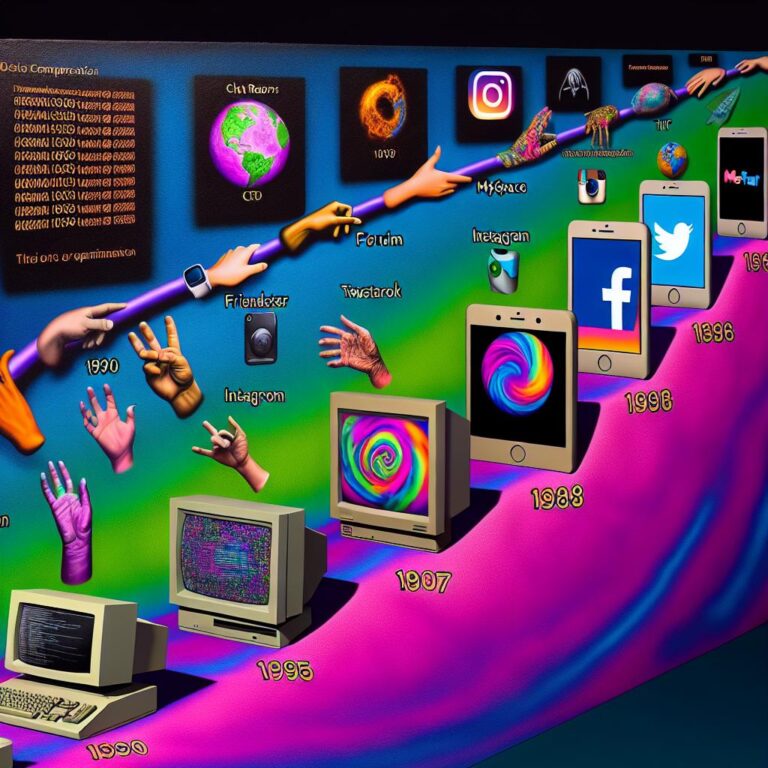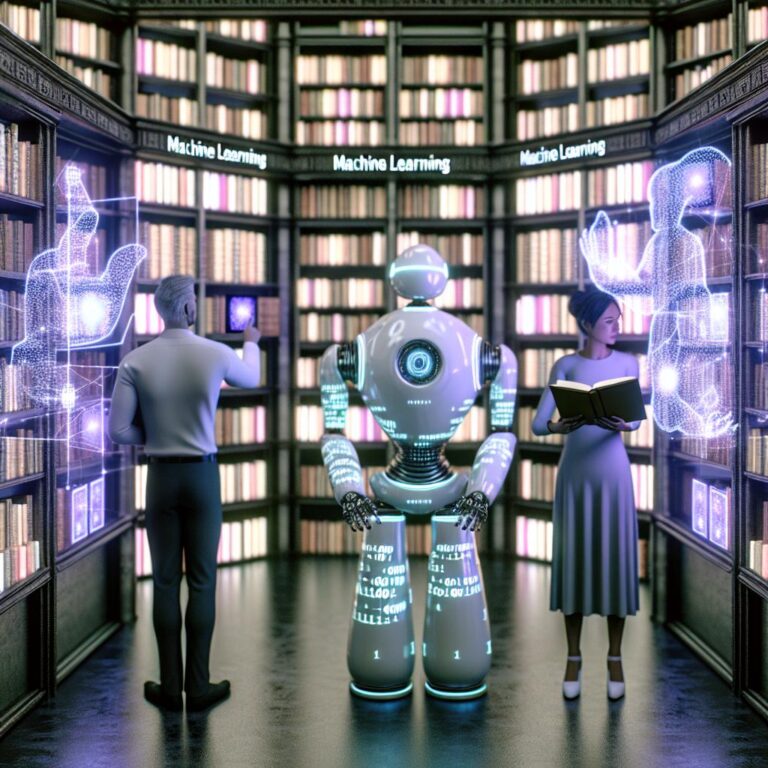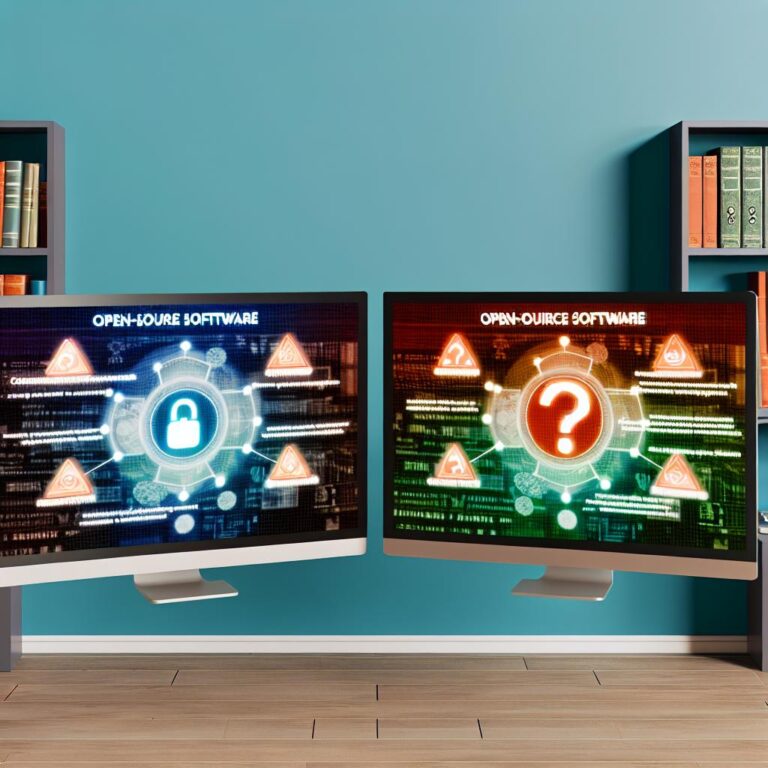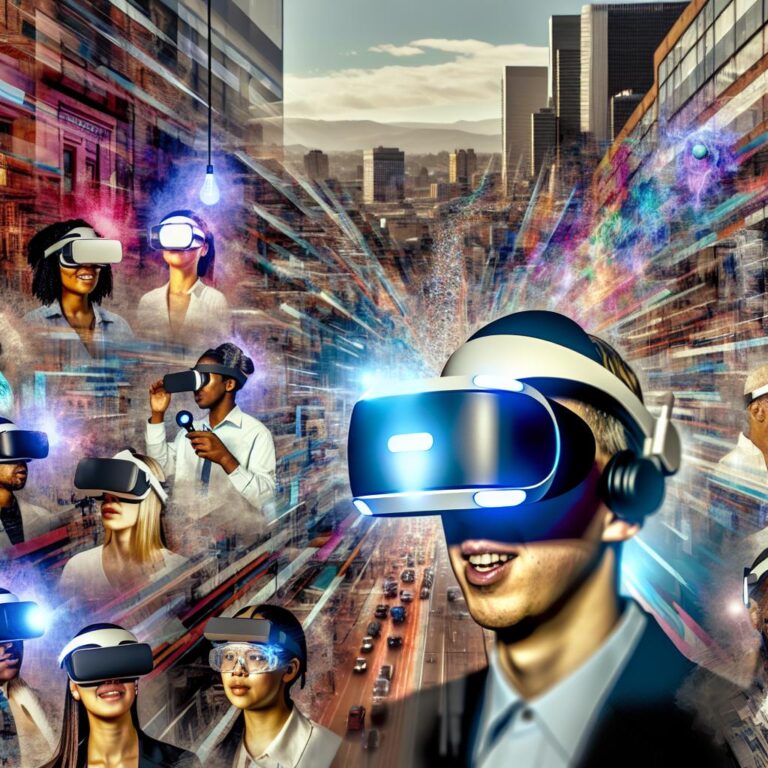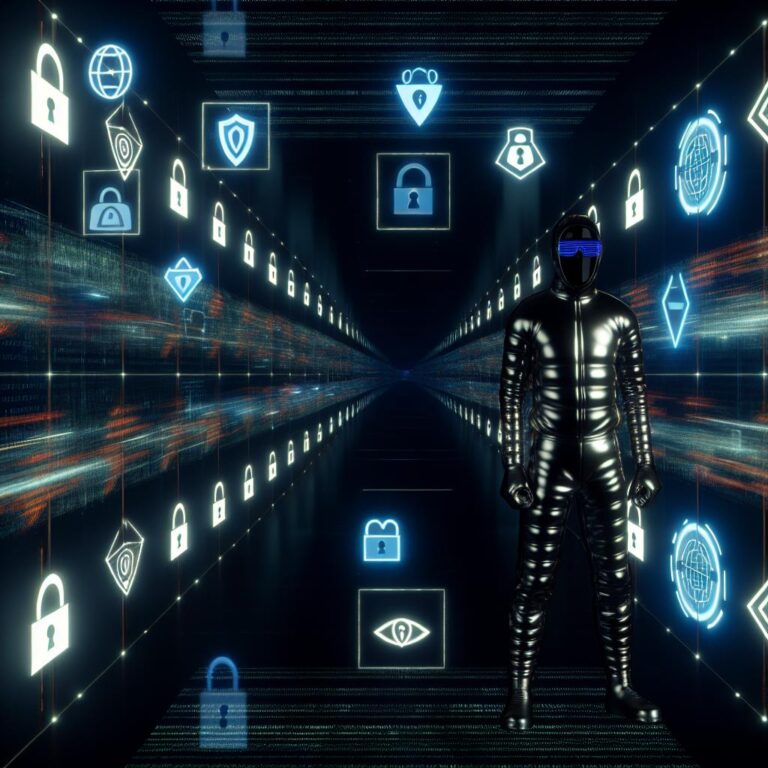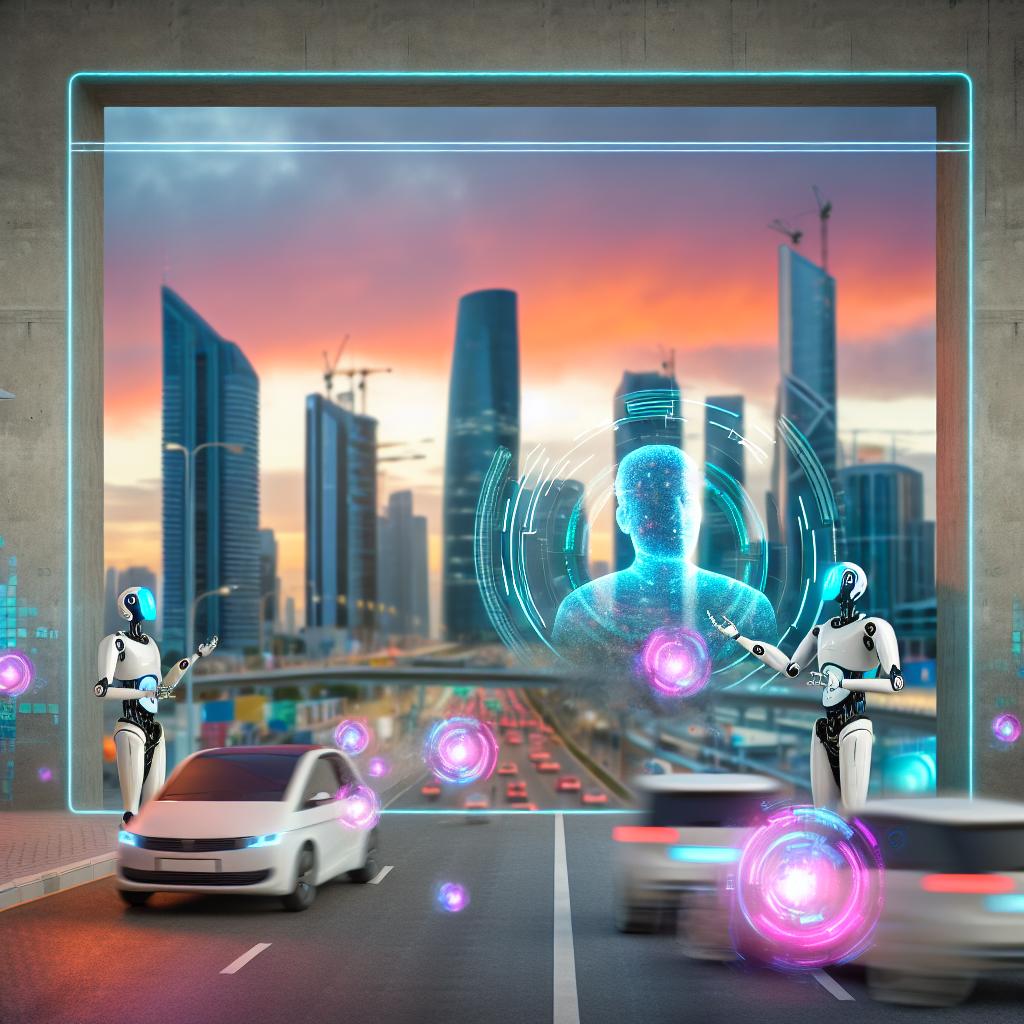
AI Evolution and Impact
- Early Milestones: AI began with the Dartmouth Conference in 1956. Significant milestones include IBM’s Deep Blue defeating Garry Kasparov in 1997.
- Recent Progress: The last decade has seen a rise in deep learning with models like GPT-3 and GPT-4, enabled by cloud computing and large datasets.
- Role in Tech Advancements: AI enhances big data analytics, robotics, and IoT, improving efficiency but raising privacy and ethical concerns.
- Impact on Industries: AI revolutionizes healthcare with disease detection and personalized medicine, enhances financial services with fraud detection, and personalizes education through adaptive learning.
- Risks and Ethics: AI presents privacy, security, and bias challenges. Autonomous weapons and deepfakes raise serious ethical issues.
- Job Market Effect: AI shifts job roles, emphasizing tech skills like machine learning while highlighting emotional intelligence and creativity.
- Future Predictions: By 2030, AI will further automate and personalize sectors, prompting job shifts. By 2050, AI may achieve cognitive abilities, raising ethical questions.
Artificial Intelligence isn’t just sci-fi anymore; it’s shaping our future. For mobile gamers like us, understanding AI’s journey means staying ahead in tech and play. From its baby steps in chess games to revolutionizing work spaces, AI touches every part of life. What does this mean for our gaming experience? What industries will change the most? Let’s explore the future of AI together, and uncover what lies ahead.
How Has AI Evolved Over Time?
Artificial Intelligence (AI) has come a long way since its early days. From simple programs to today’s complex AI systems, AI evolution showcases a remarkable journey. Let’s dive into different stages of AI’s evolution, and see how it progressed over time.
What Were the Early Milestones in AI Development?
AI’s journey began in the 1950s with the Dartmouth conference in 1956, where John McCarthy coined the term “artificial intelligence.” People started to dream of machines that could think and learn like humans.
One significant milestone was IBM’s Deep Blue, which defeated world chess champion Garry Kasparov in 1997. This victory showed that computers could think strategically and beat human experts. But how did Deep Blue win? It used powerful algorithms to consider millions of potential moves, showcasing early AI’s strength in data processing.
These early achievements laid the groundwork for future AI applications, paving the way for more advanced systems capable of tackling complex tasks.
How Has AI Progressed in the Last Decade?
In recent years, AI development accelerated at an unprecedented rate. The past decade saw the rise of deep learning and enormous progress in neural networks. A key player in this period was OpenAI’s GPT-3 and later, GPT-4. These models showed that AI could understand and generate human-like text, which was a huge leap forward.
How did we reach this point? Improvements in computational power and access to huge datasets played a role. The introduction of cloud computing made it feasible for AI to process large amounts of information quickly.
Also, AI models expanded into generating art, composing music, and even creating deepfake videos. This raised deeper questions about creativity and originality in AI developments, illustrating both the potential and the concerns of using AI in creative fields.
What Role Has AI Played in Technological Advancements?
AI’s role in tech advancements is monumental. It has become a key driver of modern technologies, influencing various fields. How has AI transformed these areas? In big data, AI analyzes vast information pools for insights that humans might miss. It identifies patterns, predicts trends, and helps businesses optimize operations.
In robotics, AI has enhanced automation and precision. Robots can now perform complex tasks in factories, aid in surgeries, and even explore outer space. By continuously learning from data, AI-driven robots adapt and improve over time.
AI’s influence is also apparent in the Internet of Things (IoT). By enabling smart devices to communicate and collaborate, AI makes our lives more convenient. From smart homes to smart cities, AI’s integration allows for seamless interactions between devices, enhancing efficiency and convenience.
Incorporating AI is not without its challenges, though. Privacy concerns and ethical issues arise, given AI’s reliance on massive data sets. There’s a pressing need for regulations and guidelines to protect individuals’ information and ensure ethical use of AI.
Reflecting on AI’s Journey
As we reflect on AI’s journey, its transformation since inception is truly remarkable. From solving chess to powering intelligent systems, AI continues to redefine our technological landscape.
Its evolution reveals both the promise and the challenges that lie ahead. How will AI continue to shape our world? That remains a pressing and exciting question.
AI’s role in future technologies will likely grow, sparking discussions about its ethical implications and societal impact. As we move forward, understanding AI’s past helps us prepare for its future advancements, ensuring responsible growth and integration.
What Will Be the Impact of AI on Different Industries?
AI is changing many areas of our lives. From hospitals to banks, AI is everywhere. Future developments promise even more changes. Let’s explore how AI will affect healthcare, finance, and education.
How Is AI Transforming Healthcare?
AI can save lives in hospitals. You may ask, “How does AI help in healthcare?” AI helps by making disease detection faster and more accurate than ever. Think about a doctor looking at a mountain of data. This takes time and energy. AI processes this data in seconds, helping doctors diagnose diseases sooner. Early detection can be life-saving, especially with diseases like cancer.
With AI, virtual nurses can also provide 24/7 support. Virtual nurses can remind patients when to take their meds. They can also answer health questions. Some AI systems help manage hospital operations. This means fewer delays, optimizing hospital efficiency.
AI’s impact doesn’t stop here. Consider personalized medicine. AI tailors treatments based on patient data. No more one-size-fits-all care plans. Your treatment could be just for you. Research on AI in healthcare shows amazing results.
What Changes Will AI Bring to the Financial Sector?
AI in finance is gaining speed fast. You might wonder, “What can AI do in banking?” The answer is fraud detection and customer service. AI protects our money by spotting unusual account activity. AI’s precision in monitoring transactions detects fraud immediately. Banks use AI in chatbots to handle questions. These chatbots work day and night, helping faster than humans.
AI also helps banks with credit scores. Accurate credit scoring means fairer loan approvals. AI uses huge data sets to assess risks accurately. It even adapts to economic shifts, predicting future worth of investments.
But AI in finance also raises questions. Will it take away jobs? Some roles may change, but new opportunities open, too. People with skills in AI tech will find more job chances.
How Is AI Revolutionizing Educational Systems?
AI is reshaping schools in ways we couldn’t imagine. You ask, “How is AI changing our classrooms?” Imagine a teacher for every student. AI offers personalized learning paths. This means lessons designed just for you, moving at your pace. No student left behind.
AI can analyze how you learn. Are math problems your favorite, or do you prefer reading? AI knows your skills and helps strengthen weaknesses. For teachers, AI handles admin tasks. This means more time to focus on students.
AI in education isn’t just about students. AI can also improve how teachers teach. Predictive tools evaluate student progress, guiding course adjustments. AI offers resources to those needing extra help and challenges for those advancing quickly.
But some worry AI could replace teachers. In reality, AI assists teachers, not replaces them. The future will likely see AI and teachers collaborating to improve learning.
All these industries show AI’s potential. It transforms healthcare into more responsive systems, ensures secure banking, and personalizes education. But challenges like job displacement and ethical concerns exist. With proper regulation and adaptation, AI’s impact can be positive. For more detailed insights on AI’s role across industries, explore the comprehensive guide to artificial intelligence in the enterprise.
What Are the Potential Risks and Ethical Concerns with AI?
As we dive into the future of artificial intelligence, one important question arises: What are the ethical implications of AI technology? AI’s power is immense and growing, raising serious ethical concerns. AI systems must operate fairly, without bias, and respect human rights. However, they often reflect the biases in their training data. This can lead to unfair outcomes, particularly for underrepresented groups. We must tackle these biases head-on. Ensuring that AI is ethical involves diverse teams in its creation and keeping AI systems transparent and accountable.
Another pressing question is: How does AI pose a threat to privacy and security? The power of AI stems from its ability to process vast amounts of data. However, this capability comes with a dark side. AI’s effect on personal privacy is significant. AI can analyze and predict personal behaviors by collecting and processing personal data. But what happens to this data? We must secure it, and proper regulations must be in place to protect privacy. The EU’s General Data Protection Regulation (GDPR) and the AI Bill of Rights from the U.S. aim to protect user data. But these laws must evolve with AI technology to remain effective.
Then we must consider: What are the dangers associated with autonomous weapons? These are AI-powered systems designed for military and combat use. Such weapons can select and engage targets without human intervention. This technology poses ethical concerns about control and accountability. Who answers for a machine’s actions in warfare? The possibility that autonomous weapons might harm civilians or escalate conflicts is real. We must address these concerns with strict international laws. The ethical challenges of AI, especially in warfare, demand prompt action to avoid tragic misuse of technology.
As AI becomes more integrated into our lives and industries, the risks become even more evident. Each organization must balance AI’s benefits against these risks. For instance, businesses that use AI for decision-making must ensure systems are free from bias. Also, they should constantly test and adjust AI technologies to prevent unethical outcomes. Companies should be transparent about how they use AI, ensuring trust with their customers.
We should also be aware of the environmental cost of AI. Though it holds potential for aiding climate change efforts, AI’s energy demands conflict with environmental goals. Large AI models use vast amounts of electricity for training and daily operation. This usage can lead to increased carbon emissions. We can work toward greener solutions, such as using more energy-efficient algorithms.
False information spread via deepfakes is another big concern. AI can create realistic but fake videos and images. These deepfakes pose risks by spreading misinformation and manipulating public opinion. Identifying and controlling deepfakes requires advanced AI solutions. Awareness and technology must evolve together to combat misinformation effectively.
While automation through AI boosts efficiency, it also presents employment challenges. Some jobs may be lost, but new roles for skilled workers will grow. Machine learning specialist jobs are on the rise, so retraining workers is vital. We should focus on developing future skills in our workforce to prepare for changes AI brings to employment.
The conversation continues about AI’s impact on our world by 2030 and beyond. What we decide now will impact how AI affects future generations. We need strong regulations, careful monitoring, and informed decisions to ensure AI serves humanity positively. The choices we make today about AI ethics, privacy, and security lay the pathway for the future. Now is the time to act wisely and steer AI towards a future that benefits us all.
How Will AI Influence Future Work Environments?
Artificial Intelligence, or AI, holds a big role in changing how we work. In this fast-moving age, workplaces rely more on AI-driven technologies. It’s critical to understand how these changes affect us all. Let me explain what you might expect as AI becomes more common in your work life.
What is the Potential for Job Creation and Loss?
AI influences jobs a lot. Do you think AI will take over your job? It might, but it can create new jobs too. It replaces tasks, not whole jobs, most of the time. For example, AI can handle routine tasks like data entry or scheduling. But new roles open up. Jobs like AI specialists or data analysts become important. The market grows despite automation, as demand for tech skills increases.
Companies using AI can see both good and bad effects on jobs. Businesses expand and evolve with AI’s help. Some industries need more people. Manufacturing might see AI taking over simple tasks. Yet, it opens roles in machine maintenance or process improvement.
How Will AI Shape Future Work Practices?
AI changes how we work. Workplaces become more efficient. AI helps with decision-making and planning. For example, AI can suggest the best times for meetings based on data. It sees patterns and provides insights humans might miss.
AI-driven workplaces focus on collaboration. Teams connect better, even from far away. AI tools like chatbots or virtual assistants answer queries quickly. Employees spend more time on creative and strategic tasks, rather than simple ones.
Some might worry about a lack of personal input. Yet, this shift supports more informed decisions. It helps maintain a better work-life balance. With AI handling repetitive tasks, people can focus on what they do best.
What Skills Will Be In Demand with Growing AI Integration?
With AI’s rise, what skills matter most? As AI grows, skills related to technology gain importance. Understanding how AI technologies work helps. Jobs need skills like machine learning or big data knowledge. Problem-solving, creative thinking, and teamwork become key parts too.
But, tech isn’t everything. Human skills still matter. Emotional intelligence, creativity, and adaptability are crucial. As AI handles logic, humans bring emotional insight. Training and learning new skills become an ongoing process for everyone.
Industries will look for people who can bridge tech and human elements. This balance is vital for successful workplaces. Businesses will need employees who can use technology wisely, ensuring it benefits everyone.
AI changes how we work, but it doesn’t have to be scary. We can adapt by learning new skills and embracing change. AI is a tool. It’s a chance to evolve, not just replace. The future workplace, with AI, offers challenges but also exciting opportunities. Let’s prepare and make the most of these changes together.
What Are the Predictions for AI by 2030 and Beyond?
What is Expected for AI Development by 2030?
AI is set to revolutionize the world by 2030. Over 42% of businesses use AI, and this number will only increase. We can expect breakthroughs in automation, particularly in sectors like healthcare, education, and finance. AI tools will improve diagnosis accuracy, personalize education, and detect financial fraud. In healthcare, AI might identify diseases faster and offer personalized treatments. It can help doctors focus on complex tasks by automating routine processes. Many schools will use AI for personalized learning plans, tailoring lessons to each student’s pace and interests.
However, we’re also facing challenges like job disruption, with AI possibly taking over roles like secretarial work. Despite automation benefits, people worry about job losses. The demand for specialists like machine learning experts will grow. Plus, AI will handle data in new, efficient ways, helping businesses make smarter decisions.
AI will power smart cities with efficient power use and traffic control. But, this progress comes with increased energy demands, raising climate change concerns. AI could help reduce energy waste, but its energy requirements might also raise emissions.
Important regulations like the AI Bill of Rights will guide ethical AI use. New policies will protect data privacy and manage AI’s societal impact. Regulations will address intellectual property issues due to generative AI. Businesses must adapt to these changes, ensuring ethical AI use.
What Could AI Look Like in 2050?
Looking ahead to 2050, AI might become harder to recognize as it integrates deeply into our lives. Picture an AI-driven world where learning, work, and communication happen through intelligent systems. Home life will change with AI aiding elderly care, enhancing home safety, and creating personalized experiences.
AI could achieve true cognitive abilities, making decisions independently. This might involve reaching the technological singularity, where machines surpass human intelligence. This raises questions about human relevance and control over these intelligent systems.
By 2050, AI might create creative works, write stories, paint pictures, and maybe even compose music. Industries like entertainment and media will see AI-generated content, blurring lines between human and machine creation. The challenge will be ensuring AI’s creativity respects human intellectual property.
AI could also change how we handle emergencies, forecasting natural disasters precisely. It might efficiently coordinate disaster response, saving lives and reducing damage.
But, AI’s deep integration presents ethical challenges, such as non-discrimination in decision-making and control over AI-generated output. Society must address these concerns through continued dialogue and adaptable regulation.
How Will AI Impact Human Life in the Long Term?
AI’s long-term impact will drastically change our lives. It promises benefits like improved healthcare and smart city solutions. By delivering personalized and preventive care, AI can extend human life expectancy. Smart cities will reduce congestion and pollution, ushering in cleaner environments.
AI will change how we work, potentially creating new jobs while eliminating others. It may enhance collaboration by taking over mundane tasks, freeing us to focus on innovation and strategy. The skills we value might shift, with creativity and emotional intelligence gaining importance.
AI’s role in climate change could be pivotal, balancing between reducing waste and consuming vast power. It could optimize resource use, helping industries become more environmentally aware.
However, devices powered by AI will boost data generation, requiring strong privacy safeguards. Data security will become a central concern, with the government and organizations implementing policies for protection.
Ethical use of AI will need vigilance to counter biases and misinformation stemming from AI models. The risks of deepfakes and automated weapons will force us to draw firm ethical lines and develop technology for threat control.
Ultimately, AI’s future will be a story of balance—managing risks while maximizing benefits. The future promises both exciting advancements and complex challenges, making ongoing discussions essential. Understanding and adapting to these changes will guide us responsibly into this AI-driven age.
Conclusion
AI has grown from simple algorithms to game-changers in many fields. It shapes healthcare, finance, and education, but ethical issues and privacy concerns remain. In future work, AI will create jobs but may also replace some. By 2030 and beyond, AI will be smarter and more integrated into daily life. As we embrace these changes, we must balance innovation with responsibility. Let’s harness AI’s potential and make informed choices for a brighter tomorrow.

